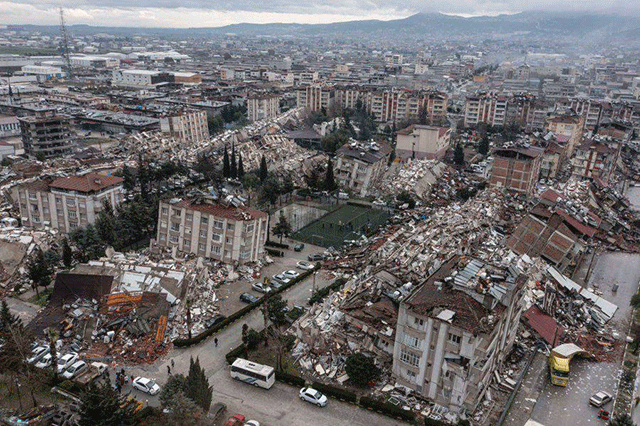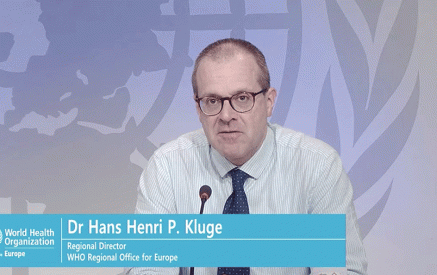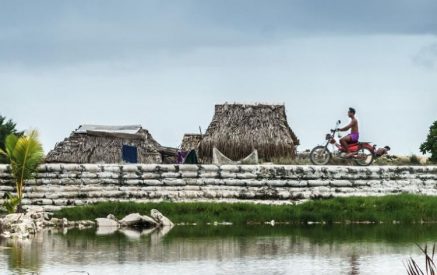Türkiye and Syria earthquakes
Statement by WHO Regional Director for Europe, Dr Hans Henri P. Kluge
Good morning.
First and foremost, on behalf of all of us at the WHO Regional Office for Europe, and our WHO Country Office in Türkiye, I would like to reiterate our heartfelt condolences to the people of Türkiye and Syria.
Your suffering is immense. Your grief profound. WHO stands with you in your hour of need – and always.
Read also
As of now, more than 31,000 people have lost their lives to the earthquakes in Türkiye. The number of injured – almost 100,000 people.
Across the border in northwest Syria, the death toll is nearly 5,000. All of these figures will likely rise.
We have, at the same time, been witnessing miraculous rescue efforts by teams of heroic Turkish responders working around the clock, in a desperate race against time. We are inspired by them and draw strength from their efforts. Yesterday, they saved Miray, a young girl living in Adiyaman, from the rubble of a block of flats. She had been trapped for 178 hours.
At WHO, we have been urging all parties – government and civil society alike – to work together to ensure cross-border delivery of humanitarian aid, between Türkiye and Syria and within Syria itself.
The needs are huge, increasing by the hour. Some 26 million people across both countries need humanitarian assistance.
We – working with many partners – are supporting the massive humanitarian response to save lives, treat the injured, and crucially, help get the health system – particularly primary health care – back up and running, however daunting that seems at the present moment.
Over the past week we have:
- Dispatched three charter flights packed with emergency kits and medical supplies destined for both Syria and Türkiye – enough to treat 400,000 people as well as conduct 120,000 urgent surgeries and more supplies are on the way.
- We have deployed technical surge teams to the disaster zone to conduct urgent public health needs assessments and support our existing field offices in the area.
- We have initiated the deployment of emergency medical teams;
- We have released 16 million dollars from our Contingency Fund for Emergencies to help people in need.
Just over a week since this terrible tragedy, there are also growing concerns over emerging health issues linked to the cold weather, hygiene and sanitation, and the spread of infectious diseases – with vulnerable people especially at risk.
We stand beside Minister of Health Dr Fahrettin Koca and the Turkish Ministry of Health, who report that critical vaccine supplies – including against tetanus and rabies – have been sent to the quake zone and mobile pharmacies have begun operating.
In Türkiye, an estimated one million people have lost their homes and are living in temporary shelters. According to the Turkish authorities, an estimated 80,000 people are in hospital, placing a huge strain on the health system, itself badly damaged by the disaster.
The World Health Organization (WHO) has launched a $43 million appeal to support the earthquake response in Syria and Türkiye, but I expect this to at least double over the coming days, as we get a better assessment of the massive scale of this crisis and the needs.
This money will be used to:
- Ensure access to the most vulnerable and hard-to-reach populations
- Provide trauma care and post-trauma rehabilitation,
- Provide essential medicines and emergency kits to fill urgent healthcare gaps,
- Deliver vital mental and psychosocial support to the affected populations, and
- Ensure continuity of routine health services, especially for women, children, the elderly, and those with noncommunicable diseases.
We have initiated the largest deployment of Emergency Medical Teams in the WHO European Region in our 75-year history.
22 emergency medical teams have arrived in Türkiye so far. These specialized teams from 19 countries will integrate into Türkiye’s ongoing health response, providing critical emergency care.
Their immediate priority will be to support the many hospitals and medical facilities that have been damaged, working particularly to deal with the high number of trauma patients and catastrophic injuries.
Now is the time for the international community to show the same generosity that Türkiye has shown to other nations globally over the years. The country is home to the largest refugee population in the world, 4.2 million people from neighbouring Syria, many of whom have lost everything, again.
We are witnessing the worst natural disaster in the WHO European Region for a century. We are still learning about its magnitude. Its true cost is not known yet. Recovering and healing will take time and a phenomenal effort. But I can assure you that WHO will remain steadfast, alongside the people of Türkiye and Syria, for as long as it takes.
Thank you.






















































